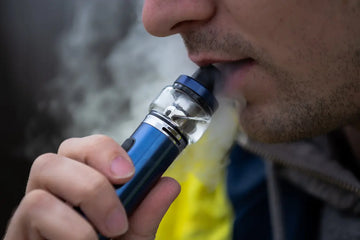Can you vape after tooth extraction?
Undergoing dental extractions is usually an unpleasant yet necessary experience to address various dental problems, from severe decay, infection and crowding to orthodontic extractions - but recovery afterwards can ensure optimal healing and help avoid complications post-extraction. A frequent question during this recovery period concerns vaping post-extraction; we discuss all potential risks and benefits involved with post-extraction vaping here.
Understanding Tooth Extraction Recovery Options
Can you vape after tooth extraction requires an understanding of its recovery process? Following extraction, a blood clot forms to cover exposed bones and nerves - this layer plays an integral part in healing. Any disruption could result in complications like dry socket.
Can Vaping after Tooth Extraction Cause Dry Sockets? Dry sockets, an inflamed condition caused when blood clots dislodge prematurely and expose bone and nerve tissue, are known to increase with smoking including vaping due to nicotine's adverse impact on healing processes.
Nicotine's Role in Healing
Nicotine, the primary component of tobacco and vaping products, contains vasoconstrictive properties which narrow blood vessels and decrease the flow of blood to surgical sites. When employed during tooth extraction procedures, reduced blood flow may prevent healing tissues from receiving essential nutrients and oxygen needed by them, delaying recovery timeframes.
Nicotine has been proven to weaken our immune systems and make us more susceptible to infections, making us even more prone to tooth extraction-related wound infections; adding nicotine only compounds this risk and could delay healing or cause complications in other ways.
Can You Vape After Extracting Teeth?
Now let's dive in and address the main question: can you vape after tooth extraction? In general, vaping should not be recommended following tooth extraction due to the potential risks associated with it. Although each individual's recovery timeline varies, vaping might not be an ideal option during the recovery period.
1. Dry Socket Risks
As discussed previously, a dry socket is an ever-present risk following tooth extraction. Vaping introduces nicotine and other chemicals directly into the oral cavity which could disrupt blood clotting processes and result in dry sockets. This delay delays healing time significantly while necessitating additional intervention from your dentist.
2. Reduced Blood Flow:
Nicotine's vasoconstrictive properties can impede blood flow to surgical sites, impairing essential nutrients and oxygen to healing tissues resulting in longer recovery times, higher pain levels, and the potential risk of complications.
3. Increased Infection Risk:
After tooth extraction, open wounds are susceptible to bacterial infection and vaping can compromise one's immune system, leaving one vulnerable to infections more easily and increasing post-extraction infection rates significantly. A compromised immune response could compromise natural defence mechanisms and significantly increase post-extraction infections.
4. Vaping Can Irritate Healing Tissues:
Vaping involves inhaling and exhaling vapor that may contain irritating elements. Constant exposure to these potential hassles may disrupt soft healing tissues in a socket and lead to rash and pain, disrupting normal healing processes.
5. Impact on Oral Health:
Vaping can have far-reaching repercussions for oral health beyond the immediate recovery period, including contributing to gum disease, tooth decay, and other dental issues. Opting out from vaping post-tooth extraction supports overall oral wellness while decreasing risks of complications and side effects.
Conclusion
Can you vape after tooth extraction although the temptation may be strong to quickly return to everyday activities such as vaping after a tooth extraction, it is vital to prioritize healing over any immediate satisfaction from such activity. Vaping can increase risks such as dry sockets, reduced blood flow, increased infection risk and irritation to healing tissues which outweigh any momentary pleasure that it might provide.
To help facilitate an easy and complication-free recovery after tooth extraction, it's wise to avoid nicotine-containing products during the healing phase of recovery. Should any questions or issues arise regarding your case or procedure, be sure to speak with your dentist, who can provide tailored advice based on both oral health concerns and the nature of the extraction procedure itself.





